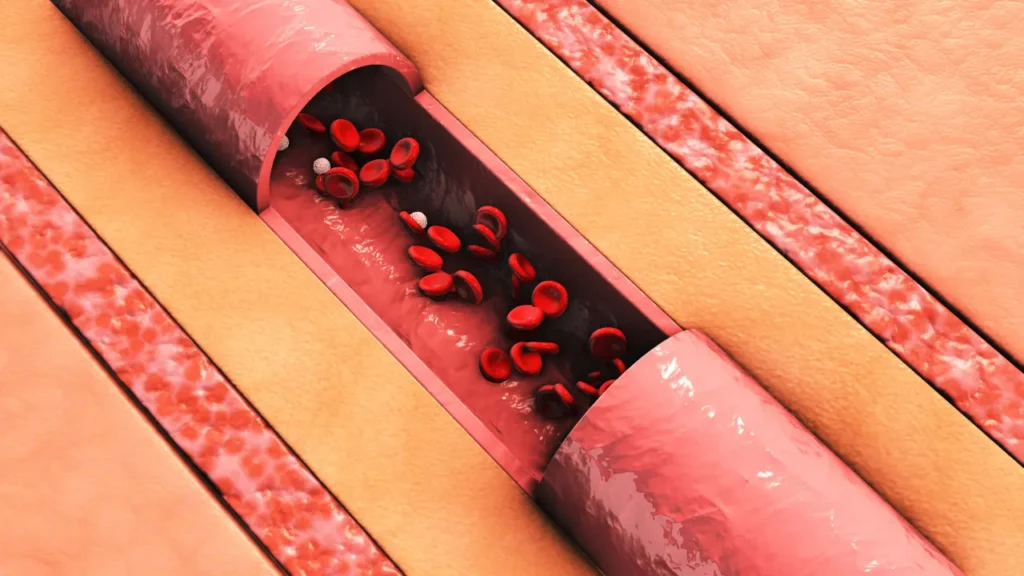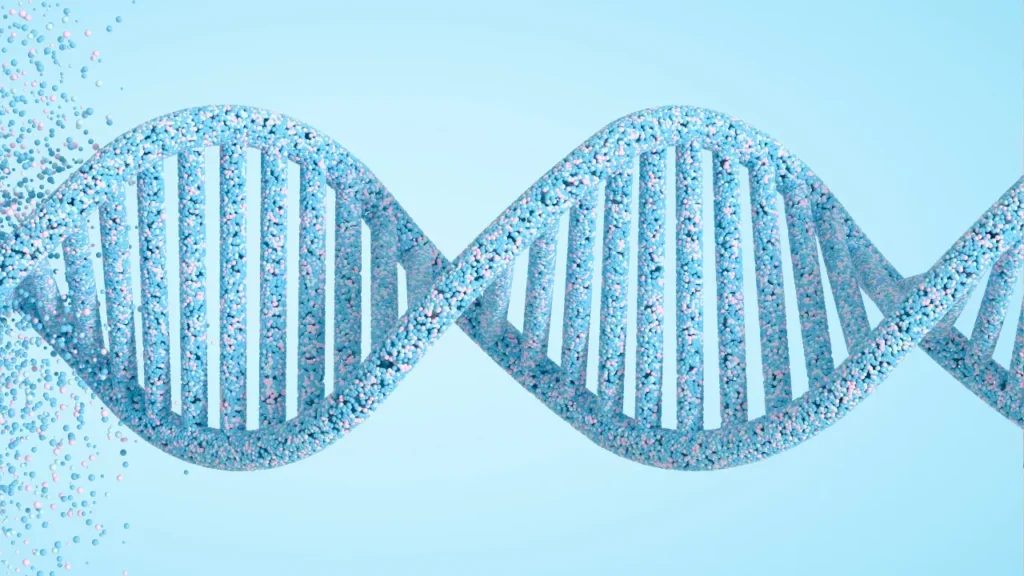Vitamin B3, known as niacin or nicotinic acid, is an essential nutrient for optimal body and brain function. It is a member of the B vitamin family, which is necessary for general health and well-being. Niacin participates in several metabolic processes, including energy generation, DNA repair, and preserving healthy skin, nerves, and digestion. Niacin has recently acquired popularity as a nootropic supplement, thought to improve alertness, concentration, and cognition. For those interested in cognitive enhancement, this paper seeks to provide a thorough review of the nature, health benefits, optimal dosage, side effects, potential substance interactions, and responsible use of niacin.
You May Also Like:
Sunmed CBD vs. Partnered Process CBD: Finding the Best CBD for Sleep
Uridine: Benefits, Dosage, Side Effects, Drug Interactions, And Other Important Information
Vitamin B3 (Niacin or nicotinic acid): Benefits, Dosage, Side Effects, Drug Interactions, And Other Important Information is an original (NootropicsPlanet) article.
Nature of Vitamin B3 (Niacin)
Niacin is a water-soluble vitamin in various foods such as meat, seafood, poultry, whole grains, and legumes. It can also be made from the amino acid tryptophan, which can be found in protein-rich meals like eggs, milk, and cheese. Because the human body cannot make niacin independently, it must be obtained through diet or supplements.
Niacin comes in two different forms: nicotinic acid and nicotinamide. The most common form of niacin in supplements is nicotinic acid, while nicotinamide is more frequently found in foods. Niacin can be converted into coenzymes in energy metabolism and other cellular processes.
Health Benefits of Vitamin B3 (Niacin)
Niacin has been shown to have a variety of health advantages, including:
- Lowering cholesterol levels: Niacin is known to raise high-density lipoprotein (HDL) or “good” cholesterol levels while decreasing LDL or “bad” cholesterol levels. This impact is thought to be due to niacin’s capacity to inhibit fat breakdown in the liver, resulting in lower LDL cholesterol production.
- Improving heart health: Niacin has been shown to benefit a variety of heart disease risk factors, including high blood pressure, elevated cholesterol, and atherosclerosis. It also aids in improving blood flow, reducing irritation, and preventing blood clots.
- Improving cognitive function: Some studies have shown that niacin improves cognitive function, especially in memory, attention, and mood. This effect is thought to be caused by niacin’s capacity to improve blood flow and oxygen supply to the brain.
- Pellagra treatment: Pellagra is a rare disease caused by a severe niacin deficiency. Skin rashes, gastrointestinal issues, and neurological signs are among the indicators. Niacin supplementation is an efficient pellagra treatment.
- Increased energy production: Niacin aids in producing adenosine triphosphate (ATP), the body’s primary energy source. Supplementation with niacin may boost energy and reduce fatigue.

Chemistry of Vitamin B3 (Niacin)
Niacin is a water-soluble vitamin that is part of the B-complex vitamin group. Nicotinic acid is its molecular name, and it is also known as vitamin B3. Niacin is a white, crystalline substance that is stable when desiccated but degrades by heat, light, and alkaline solutions. Many foods contain niacin, including meat, seafood, chicken, enriched grains, and fortified cereals.
Physiological Mechanisms of Action
Niacin is essential for many physiological functions in the body, such as energy metabolism, DNA repair, and gene expression. One of its primary mechanisms of action is its ability to function as a precursor for two coenzymes, nicotinamide adenine dinucleotide (NAD) and nicotinamide adenine dinucleotide phosphate (NADP). These coenzymes involve various cellular functions, including energy production, DNA repair, and cell signaling.
Niacin is also vital in controlling lipid metabolism. It can lower low-density lipoprotein (LDL) or “bad” cholesterol levels in the blood while increasing high-density lipoprotein (HDL) or “good” cholesterol levels. This effect is thought to be due to niacin’s capacity to inhibit the liver’s synthesis of fatty acids and triglycerides, which lowers LDL cholesterol production.
Niacin has been found to have several other physiological effects in addition to its function in lipid metabolism, including:
- Vasodilation: Niacin can induce vasodilation, which increases blood flow to the skin and causes the niacin flush.
- Anti-inflammatory properties: Niacin has been shown to have anti-inflammatory properties, which may be help lower the chance of cardiovascular disease.
- Antioxidant properties: Niacin contains antioxidants that can help safeguard the body from oxidative stress and cell damage.
- Memory and attention: Niacin has been shown to improve cognitive performance, including memory and attention.
In conclusion, niacin is a water-soluble vitamin essential for many physiological functions. Its main mode of action is to function as a precursor for NAD and NADP, two coenzymes involved in numerous cellular processes. Niacin also regulates lipid metabolism, causes vasodilation, acts as an anti-inflammatory and antioxidant, and improves cognitive performance.

Optimal Dosage of Vitamin B (Niacin)
Several variables, including age, gender, weight, and overall health, determine the optimal niacin dosage. Niacin’s suggested daily allowance (RDA) for adults is 14-18 mg daily, with higher requirements during pregnancy and lactation.
Niacin is commonly consumed in doses ranging from 50 to 500 mg daily for cognitive enhancement. To prevent potential side effects, beginning with a lower dose and gradually raising it is critical.
High amounts of niacin can cause a condition known as niacin flush, characterized by skin redness, warmth, and itching. This condition is caused by niacin’s ability to induce vasodilation, which results in increased blood flow to the skin. The niacin flush usually lasts 20-30 minutes and can be minimized by taking niacin with meals or extended-release niacin supplements.
Side Effects of Vitamin B (Niacin)
While niacin is usually safe when consumed in the recommended doses, high doses can result in some side effects, including:
- Niacin flush: As previously stated, high doses of niacin can produce a flushing sensation that is harmless but unpleasant.
- Gastrointestinal issues: High niacin dosages can induce nausea, vomiting, and diarrhea.
- Liver damage: High doses of niacin can cause liver damage, especially when combined with other liver-damaging medications or supplements.
- Increased blood sugar levels: High amounts of niacin can raise blood sugar levels, especially in people with diabetes.
- Interaction with other medications: Niacin can conflict with several medications, including blood thinners, cholesterol-lowering, and diabetes medications.

Potential Substance Interactions with Vitamin B (Niacin)
Niacin can be combined with a variety of substances, including prescription medicines, over-the-counter medications, and dietary supplements. Some of the most frequent interactions are as follows:
- Blood thinners: Niacin, when combined with blood-thinning medications such as warfarin or aspirin, can increase the chance of bleeding.
- Cholesterol-lowering drugs: Niacin can boost the effects of cholesterol-lowering drugs like statins, raising the risk of side effects like liver damage and muscle pain.
- Diabetes medications: Niacin can impair the efficacy of diabetes medications, especially insulin.
- Alcohol: Drinking alcohol while taking niacin raises the chance of liver damage.
Best Responsible Uses of Vitamin B (Niacin)
While niacin has many health benefits and is usually safe when taken in recommended doses, it is critical to use it responsibly to prevent potential side effects. Here are some guidelines for using niacin responsibly:
- To prevent the niacin flush, begin with a low dose and gradually increase it over time.
- Take niacin with food to minimize the risk of stomach upset.
- Avoid taking excessive doses of niacin without consulting a doctor.
- Do not substitute niacin for prescription medications without consulting a healthcare practitioner.
- Before beginning niacin supplementation, inform your healthcare practitioner of any medications or supplements you take.
Vitamin B3 (Niacin):
Conclusion
Niacin is a vital nutrient offering diverse health benefits crucial for overall well-being. Its role in cholesterol management, cardiovascular health, energy metabolism, skin health, nervous system function, digestive health, and blood sugar regulation underscores its significance in supporting various physiological processes. Ensuring adequate niacin intake through a balanced diet rich in niacin-containing foods or supplementation is essential for preventing niacin deficiency-related health issues and promoting optimal health.
Incorporating niacin-rich foods such as meat, fish, nuts, seeds, whole grains, and fortified cereals into the diet can help meet daily niacin requirements and support overall health and vitality. Overall, recognizing the importance of niacin in maintaining health underscores the significance of including this essential nutrient as part of a balanced lifestyle for long-term well-being and vitality.

References:
- Niacin – Health Professional Fact Sheet. Link: https://ods.od.nih.gov/factsheets/Niacin-HealthProfessional/
- Niacin – an overview. Link: https://www.sciencedirect.com/topics/agricultural-and-biological-sciences/niacin
- 5 Science-Based Benefits of Niacin (Vitamin B3). Link: https://www.healthline.com/nutrition/niacin-benefits
Important Note: The information contained in this article is for general informational purposes only, and should not be construed as health or medical advice, nor is it intended to diagnose, prevent, treat, or cure any disease or health condition. Before embarking on any diet, fitness regimen, or program of nutritional supplementation, it is advisable to consult your healthcare professional in order to determine its safety and probable efficacy in terms of your individual state of health.
Regarding Nutritional Supplements Or Other Non-Prescription Health Products: If any nutritional supplements or other non-prescription health products are mentioned in the foregoing article, any claims or statements made about them have not been evaluated by the U.S. Food and Drug Administration, and such nutritional supplements or other health products are not intended to diagnose, treat, cure, or prevent any disease.


